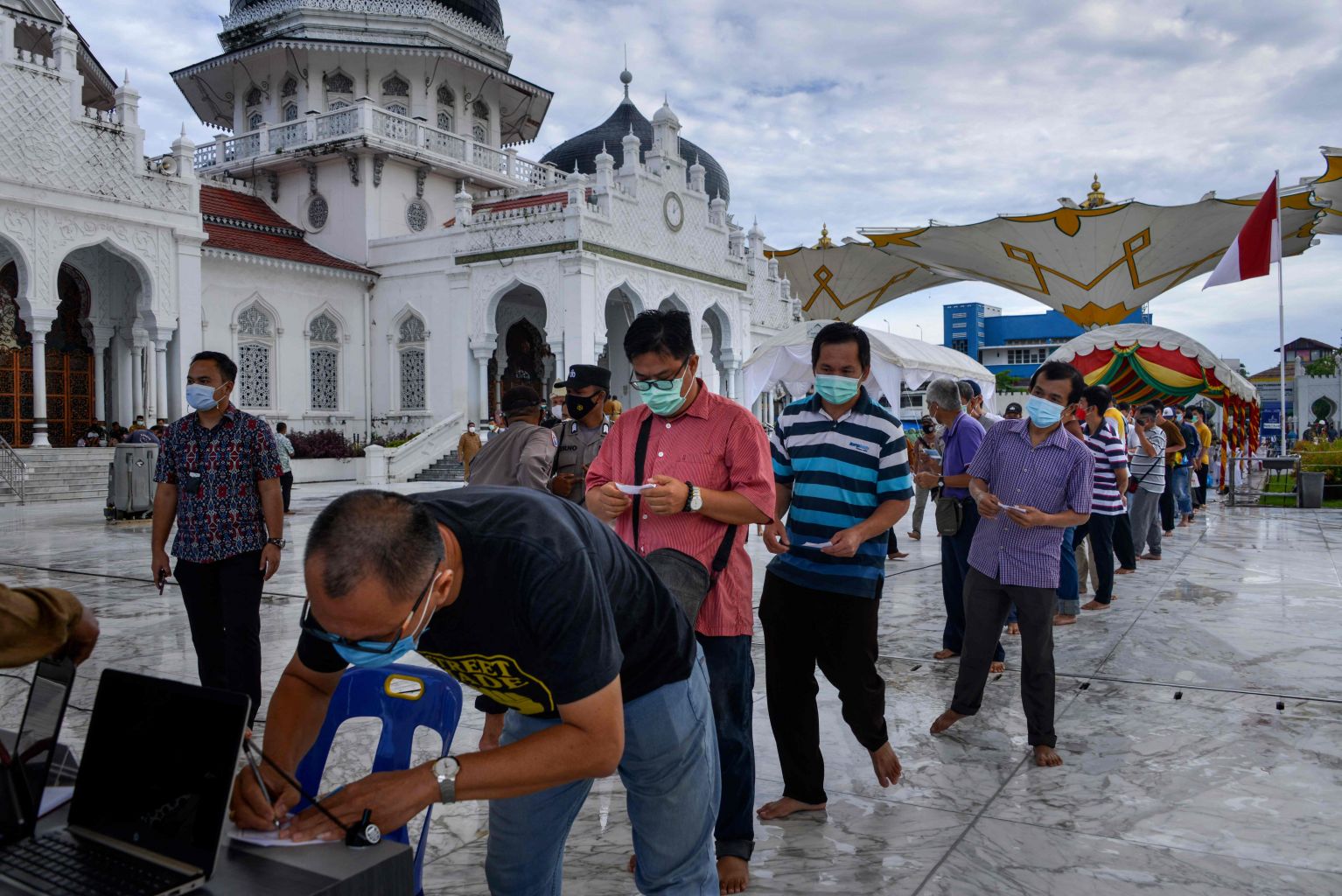World leaders, WHO push for pandemic preparedness treaty
Sign up now: Get ST's newsletters delivered to your inbox

People wait in a queue for Covid-19 vaccine shots in front of the Baiturrahman grand mosque in Indonesia's Banda Aceh on March 30, 2021.
PHOTO: AFP
Follow topic:
BEIJING - Global leaders and the World Health Organisation (WHO) are pushing for an international treaty that would boost the world's ability to respond to a future pandemic, saying it is a matter of time before the next infectious pathogen emerges.
The goal is to prevent a recurrence of the missteps that have dogged the global response to the Covid-19 pandemic - from the scramble for personal protective equipment at the start to current issues over the distribution of vaccines.
The call to establish a framework to share information, diagnostics, technology and essentials like vaccines and personal protective equipment comes as a WHO-led team published its highly anticipated findings after a mission to Wuhan, China, and concluded that Covid-19 most likely originated from bats and not a laboratory.
In a signed joint letter published in newspapers around the world, the 25 world leaders and the WHO called for greater international cooperation to tackle future pandemics.
"There will be other pandemics and other major health emergencies. No single government or multilateral agency can address this threat alone. The question is not if, but when," they said.
"We are, therefore, committed to ensuring universal and equitable access to safe, efficacious and affordable vaccines, medicines and diagnostics for this and future pandemics."
The countries calling for an international agreement include Indonesia, Britain, Germany, France and South Africa.
At the moment, leaders from key world powers such as the United States and China are not among the signatories.
WHO director-general Tedros Adhanom Ghebreyesus said at a virtual briefing on Tuesday (March 30) that the Covid-19 pandemic has exposed gaps in "national, regional and global preparedness and response systems".
He added that the proposed treaty could be advanced at the WHO's annual ministerial assembly in May.
"The time to act is now. The world cannot afford to wait until the pandemic is over to start planning for the next one," said Dr Tedros.
Meanwhile, experts from a WHO-led team investigating the origins of Covid-19 said on Tuesday that Sars-CoV-2, the virus that causes Covid-19, had most likely originated in bats and jumped to humans via an intermediate animal.
The findings, published in a 120-page report, determined that a leak from a laboratory was the least likely hypothesis, saying this was "extremely unlikely".
Dr Tedros, however, said that the lab leak hypothesis requires further investigation.
The report fleshes out how the investigators reached their conclusions.
Four possible scenarios were listed - it was "likely to very likely" that the virus jumped from bats to humans via an intermediate animal, while a direct jump to humans from bats was considered "possible to likely".
On the other hand, introduction from frozen food products was thought "possible", while a virus laboratory leak was found to be "extremely unlikely".
One of the next courses of action, then, should be to find the intermediate host, said the report, suggesting that a wide net should be cast, with susceptible animals in farms as far afield as South-east Asia surveyed for viruses related to Sars-Cov-2.
Dr Peter Ben Embarek, head of the WHO team, said more studies were needed to pinpoint the virus' origin.
"This is only a first start, we've only scratched the surface of these very complex... studies that need to be conducted," he said.

